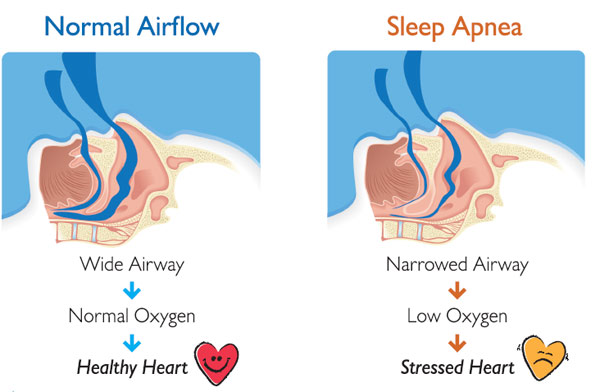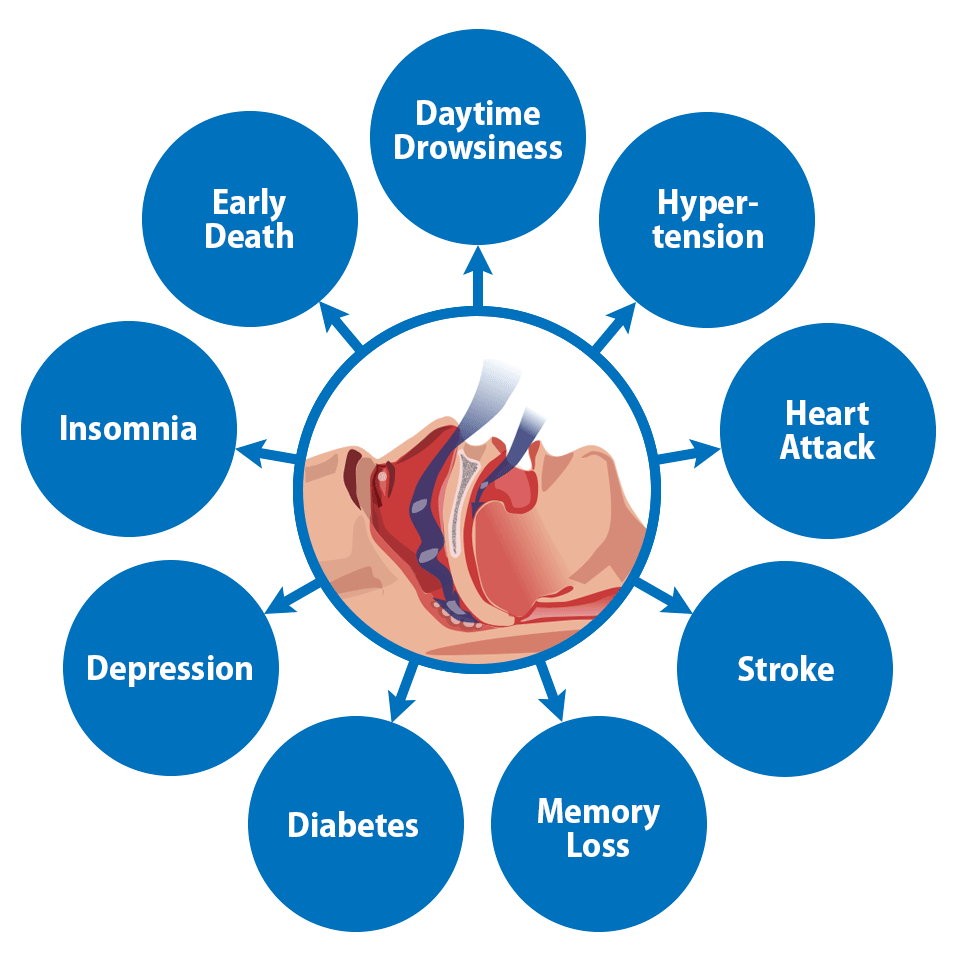How Do You Know I Have Problems With My Airway?
To diagnose your condition, Dr. Sommers may make an evaluation based on your signs and symptoms, an examination, and tests. Dr. Sommers may even recommend a sleep study. Some studies can even be done at home. Dr. Sommers will examine the back of your throat, mouth, and nose for extra tissue or abnormalities. He will use a pharyngometer and rhinometer to measure your airway. It’s completely painless and you see the results the same day!

What Are the Symptoms?
The most common sign of an obstructed airway is chronic snoring. Those with an obstructed airway often wake themselves up choking or gasping for air throughout the night. These constant sleep disturbances lead to chronic fatigue and daytime sleepiness, in addition to waking up feeling tired after what should have been a full night’s rest. Many sufferers wake up with dry mouth or headache and tend to urinate more frequently throughout the night. Airway obstruction can also cause insomnia, nightmares, anxiety, and depression.
What Are the Consequences?
Left untreated, an obstructed airway can have devastating consequences. It causes low blood oxygen levels from a chronic lack of oxygen each night, contributing to the potential development of serious systemic diseases, including heart disease, stroke, and diabetes. Sufferers are also more likely to fall asleep randomly throughout the day and are at a high risk of auto accidents caused by falling asleep at the wheel.

